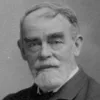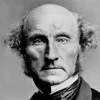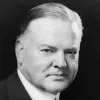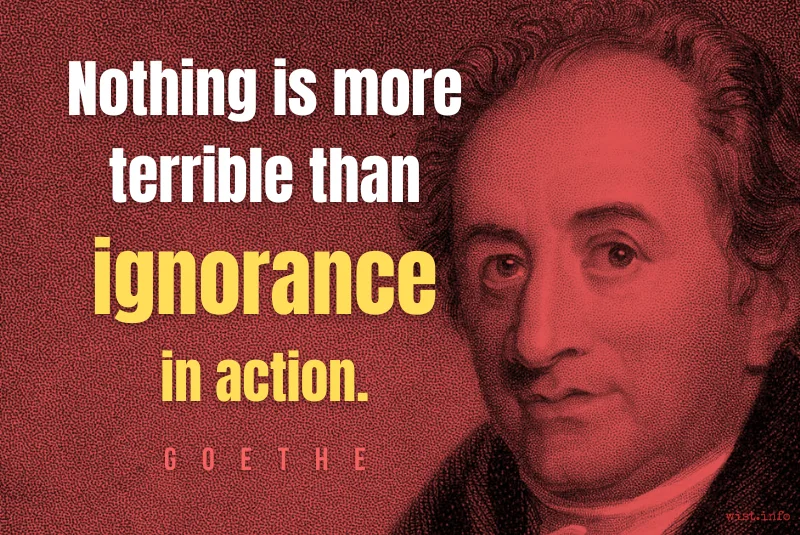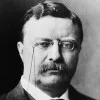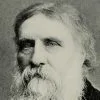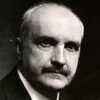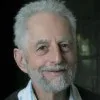Only actions give life strength; only moderation gives it a charm.
[Nur Taten geben dem Leben Stärke, nur Maß ihm Reiz.]
Jean Paul Richter (1763-1825) German writer, art historian, philosopher, littérateur [Johann Paul Friedrich Richter; pseud. Jean Paul]
Titan, Jubilee 35, cycle 145 (1803) [tr. Brooks (1863)]
(Source)
Often only the first part is given as a quotation (or even just as a "German proverb").
(Source (German)). Alternate translations:Only deeds give strength to life, and only measure gives it charm.
[Source (1858)]Only deeds give strength to life, only moderation gives it charm.
[Source (1896)]
Quotations about:
action
Note not all quotations have been tagged, so Search may find additional quotes on this topic.
But in our flowing affairs a decision must be made, — the best, if you can, but any is better than none. There are twenty ways of going to a point, and one is the shortest; but set out at once on one. A man who has that presence of mind which can bring to him on the instant all he knows, is worth for action a dozen men who know as much but can only bring it to light slowly.
Ralph Waldo Emerson (1803-1882) American essayist, lecturer, poet
Essay (1860), “Power,” The Conduct of Life, ch. 2
(Source)
Based on a course of lectures by that name first delivered in Pittsburg (1851-03).
What with your exercises, some reading, and a great deal of company, your day is, I confess, extremely taken up; but the day, if well employed, is long enough for everything; and I am sure you will not slattern away one moment of it in inaction.
Lord Chesterfield (1694-1773) English statesman, wit [Philip Dormer Stanhope]
Letter to his son, #238 (8 Jan 1751)
(Source)
Actually, we who engage in nonviolent direct action are not the creators of tension. We merely bring to the surface the hidden tension that is already alive. We bring it out in the open, where it can be seen and dealt with. Like a boil that can never be cured so long as it is covered up but must be opened with all its ugliness to the natural medicines of air and light, injustice must be exposed, with all the tension its exposure creates, to the light of human conscience and the air of national opinion before it can be cured.
Martin Luther King, Jr. (1929-1968) American clergyman, civil rights leader, social activist, preacher
Letter from Birmingham Jail (16 Apr 1963)
(Source)
But indeed Conviction, were it never so excellent, is worthless till it convert itself into Conduct. Nay properly Conviction is not possible ill then.
Thomas Carlyle (1795-1881) Scottish essayist and historian
Sartor Resartus, Book 2, ch. 9 (1831)
(Source)
Words are like money; there is nothing so useless, unless when in actual use.
Samuel Butler (1835-1902) English novelist, satirist, scholar
The Note-Books of Samuel Butler, “Thought and Word,” viii (1912)Full text.
A good deed is the best prayer. A loving life is the best religion.
Charity is a virtue of the heart, and not of the hands, says an old writer. Gifts and alms are the expressions, not the essence of this virtue. A man may bestow great sums on the poor and indigent without being charitable, and may be charitable when he is not able to bestow anything. Charity is therefore a habit of good will, or benevolence in the soul, which disposes us to the love, assistance, and relief of mankind, especially of those who stand in need of it.
Joseph Addison (1672-1719) English essayist, poet, statesman
Essay (1713-09-21), The Guardian, No. 166
(Source)
He who can, does. He who cannot, teaches.
George Bernard Shaw (1856-1950) British playwright and critic
Man and Superman, “Maxims for Revolutionists,” “Education” (1903)
(Source)
Well done is better than well said.
Benjamin Franklin (1706-1790) American statesman, scientist, philosopher, aphorist
Poor Richard (1737 ed.)
(Source)
In our era, the road to holiness necessarily passes through the world of action.
Dag Hammarskjöld (1905-1961) Swedish diplomat, author, UN Secretary-General (1953-61)
Markings (1955) [tr. Sjoberg, Auden (1964)]
(Source)
To act is to be committed, and to be committed is to be in danger.
James Baldwin (1924-1987) American novelist, playwright, activist
“My Dungeon Shook,” The Fire Next Time (1963)
(Source)
Hence a young man is not a proper hearer of lectures on political science; for he is inexperienced in the actions that occur in life, but its discussions start from these and are about these; and, further, since he tends to follow his passions, his study will be vain and unprofitable, because the end aimed at is not knowledge but action.
[διὸ τῆς πολιτικῆς οὐκ ἔστιν οἰκεῖος ἀκροατὴς ὁ νέος: ἄπειρος γὰρ τῶν κατὰ τὸν βίον πράξεων, οἱ λόγοι δ᾽ ἐκ τούτων καὶ περὶ τούτων: ἔτι δὲ τοῖς πάθεσιν ἀκολουθητικὸς ὢν ματαίως ἀκούσεται καὶ ἀνωφελῶς, ἐπειδὴ τὸ τέλος ἐστὶν οὐ γνῶσις ἀλλὰ πρᾶξις.]
Aristotle (384-322 BC) Greek philosopher
Nicomachean Ethics [Ἠθικὰ Νικομάχεια], Book 1, ch. 3 (1.3.5-6) / 1095a.2-5 (c. 325 BC) [tr. Ross (1908)]
(Source)
(Source (Greek)). Alternate translations:Hence the young man is not a fit student of Moral Philosophy, for he has no experience in the actions of life, while all that is said presupposes and is concerned with these: and in the next place, since he is apt to follow the impulses of his passions, he will hear as though he heard not, and to no profit, the end in view being practice and not mere knowledge.
[tr. Chase (1847), ch. 1]And hence it is that a young man is not a fit student of the art political; for he has had no experience in matters of daily life, with which matters our premises are concerned, and of which our conclusions treat. And since, moreover, he is prone to follow his desires, he will listen without purpose, and so without benefit. For the true object of ethical study is not merely the knowledge of what is good, but the application of that knowledge.
[tr. Williams (1869), sec. 3]Hence the young are not proper students of political science, as they have no experience of the actions of life which form the premises and subjects of the reasonings. Also it may be added that from their tendency to follow their emotions they will not study the subject to any purpose or profit, as its end is not knowledge but action.
[tr. Welldon (1892), ch. 1]And hence a young man is not qualified to be a student of Politics; for he lacks experience of the affairs of life, which form the data and the subject-matter of Politics. Further, since he is apt to be swayed by his feelings, he will derive no benefit from a study whose aim is not speculative but practical.
[tr. Peters (1893)]Hence the young are not fit to be students of Political Science. For they have no experience of life and conduct, and it is these that supply the premisses and subject matter of this branch of philosophy. And moreover they are led by their feelings; so that they will study the subject to no purpose or advantage, since the end of this science is not knowledge but action.
[tr. Rackham (1934)]That is why a young person is not a suitable audience for politics. For he has no experience with the actions of life, and the accounts are in accord with these and concerned with these. Further, since he tends to follow his feelings, it will be pointless and not beneficial to him to be in the audience, since the end is not knowledge but action.
[tr. Reeve (1948)]In view of this, a young man is not a proper student of [lectures on] politics; for he is inexperienced in actions concerning human life, and discussions proceed from [premisses concerning those actions] and deal with [those actions]. Moreover, being disposed to follow his passions, he will listen in vain and without benefit, since the end of such discussions is not knowledge but actions.
[tr. Apostle (1975), ch. 1]This is why a young man is not a fit person to attend lectures on political science, because he is not versed in the practical business of life from which politics draws its premisses and subject matter. Besides, he tends to follow his feelings, with the result that he will make no headway and derive no benefit from his course, since the object of it is not knowledge but action.
[tr. Thomson/Tredennick (1976)]This is why a youth is not a suitable student of political science; for he lacks experience of the actions of life which political science argues from and about. Moreover, since he tends to be guided by his feelings, his study will be futile and useless; for its end is action, not knowledge.
[tr. Irwin/Fine (1995)]This is why a young person is not fitted to hear lectures on political science, since our discussions begin from and concern the actions of life, and of these he has no experience. Again, because of his tendency to follow his feelings, his studies will be useless and to no purpose, since the end of the study is not knowledge but action.
[tr. Crisp (2000)]Hence of the political art, a young person is not an appropriate student, for he is inexperienced in the actions pertaining to life, and the arguments are based on these actions and concern them. Further, because he is disposed to follow the passions, he will listen pointlessly and unprofitably, since the end involved is not knowledge but action.
[tr. Bartlett/Collins (2011)]
Note that this passage was the basis for these lines from Shakespeare, Troilus and Cressida, Act 2, sc. 2, l. 165 (1609):Young men, whom Aristotle thought
Unfit to hear moral philosophy
You must have been warned against letting the golden hours slip by. Yes, but some of them are golden only because we let them slip.
J. M. Barrie (1860-1937) Scottish novelist and dramatist [James Matthew Barrie]
“Courage,” Rectoral Address, University of St. Andrews, Scotland (1922-05-03)
(Source)
We will have to repent in this generation not merely for the vitriolic words and actions of the bad people, but for the appalling silence of the good people. We must come to see that human progress never rolls in on wheels of inevitability. It comes through the tireless efforts and persistent work of men willing to be co-workers with God, and without this hard work time itself becomes an ally of the forces of social stagnation. We must use time creatively, and forever realize that the time is always ripe to do right.
Martin Luther King, Jr. (1929-1968) American clergyman, civil rights leader, social activist, preacher
Letter from Birmingham Jail (16 Apr 1963)
(Source)
Undoubtedly the stories about them [hard-boiled detectives] had a fantastic element. Such things happened, but not so rapidly, nor to so close-knit a group of people, nor within so narrow a frame of logic. This was inevitable because the demand was for constant action; if you stopped to think you were lost. When in doubt, have a man come through a door with a gun in his hand.
The only part of the conduct of any one, for which he is amenable to society, is that which concerns others. In the part which merely concerns himself, his independence, is, of right, absolute. Over himself, over his own body and mind, the individual is sovereign.
John Stuart Mill (1806-1873) English philosopher and economist
On Liberty, ch. 1 “Introductory” (1859)
(Source)
KING: ’Tis well said again,
And ’tis a kind of good deed to say well.
And yet words are no deeds.William Shakespeare (1564-1616) English dramatist and poet
Henry VIII, Act 3, sc. 2, l. 195ff (3.2.195-197) (1613)
(Source)
What good is it, my brothers and sisters, if someone claims to have faith but does not have works? Surely that faith cannot save, can it? If a brother or sister is naked and lacks daily food and one of you says to them, “Go in peace; keep warm and eat your fill,” and yet you do not supply their bodily needs, what is the good of that? So faith by itself, if it has no works, is dead.
But someone will say, “You have faith, and I have works.” Show me your faith apart from works, and I by my works will show you faith.[Τί τὸ ὄφελος ἀδελφοί μου ἐὰν πίστιν λέγῃ τις ἔχειν ἔργα δὲ μὴ ἔχῃ μὴ δύναται ἡ πίστις σῶσαι αὐτόν. ἐὰν ἀδελφὸς ἢ ἀδελφὴ γυμνοὶ ὑπάρχωσιν καὶ λειπόμενοι τῆς ἐφημέρου τροφῆς. εἴπῃ δέ τις αὐτοῖς ἐξ ὑμῶν Ὑπάγετε ἐν εἰρήνῃ θερμαίνεσθε καὶ χορτάζεσθε μὴ δῶτε δὲ αὐτοῖς τὰ ἐπιτήδεια τοῦ σώματος τί τὸ ὄφελος. οὕτως καὶ ἡ πίστις ἐὰν μὴ ἔχῃ ἔργα νεκρά ἐστιν καθ’ ἑαυτήν.
Ἀλλ’ ἐρεῖ τις Σὺ πίστιν ἔχεις κἀγὼ ἔργα ἔχω δεῖξόν μοι τὴν πίστιν σου χωρὶς τῶν ἔργων κἀγώ σοι δείξω ἐκ τῶν ἔργων μου τὴν πίστιν.]The Bible (The New Testament) (AD 1st - 2nd C) Christian sacred scripture
James 2:14-18 [NRSV (2021 ed.)]
(Source)
(Source (Greek)). Alternate translations:What doth it profit, my brethren, though a man say he hath faith, and have not works? Can faith save him? If a brother or sister be naked, and destitute of daily food, and one of you say unto them, Depart in peace, be ye warmed and filled; notwithstanding ye give them not those things which are needful to the body; what doth it profit? Even so faith, if it hath not works, is dead, being alone. Yea, a man may say, Thou hast faith, and I have works: shew me thy faith without thy works, and I will shew thee my faith by my works.
[KJV (1611)]Take the case, my brothers, of someone who has never done a single good act but claims that he has faith. Will that faith save him? If one of the brothers or one of the sisters is in need of clothes and has not enough food to live on, and one of you says to them, 'I wish you well; keep yourself warm and eat plenty', without giving them these bare necessities of life, then what good is that? Faith is like that: if good works do not go with it, it is quite dead. This is the way to talk to people of that kind: 'You say you have faith and I have good deeds; I will prove to you that I have faith by showing you my good deeds -- now you prove to me that you have faith without any good deeds to show.'
[JB (1966)]My friends, what good is it for one of you to say that you have faith if your actions do not prove it? Can that faith save you? Suppose there are brothers or sisters who need clothes and don't have enough to eat. What good is there in your saying to them, “God bless you! Keep warm and eat well!”—if you don't give them the necessities of life? So it is with faith: if it is alone and includes no actions, then it is dead.
But someone will say, “One person has faith, another has actions.” My answer is, “Show me how anyone can have faith without actions. I will show you my faith by my actions.”
[GNT (1976)]How does it help, my brothers, when someone who has never done a single good act claims to have faith? Will that faith bring salvation? If one of the brothers or one of the sisters is in need of clothes and has not enough food to live on, and one of you says to them, 'I wish you well; keep yourself warm and eat plenty,' without giving them these bare necessities of life, then what good is that? In the same way faith, if good deeds do not go with it, is quite dead. But someone may say: So you have faith and I have good deeds? Show me this faith of yours without deeds, then! It is by my deeds that I will show you my faith.
[NJB (1985)]My brothers and sisters, what good is it if people say they have faith but do nothing to show it? Claiming to have faith can’t save anyone, can it? Imagine a brother or sister who is naked and never has enough food to eat. What if one of you said, “Go in peace! Stay warm! Have a nice meal!”? What good is it if you don’t actually give them what their body needs? In the same way, faith is dead when it doesn’t result in faithful activity. Someone might claim, “You have faith and I have action.” But how can I see your faith apart from your actions? Instead, I’ll show you my faith by putting it into practice in faithful action.
[CEB (2011)]
IAGO: Pleasure and action make the hours seem short.
William Shakespeare (1564-1616) English dramatist and poet
Othello, Act 2, sc. 3, l. 400 (2.3.400) (1603)
(Source)
I am here to represent humanity: it is by no means necessary that I should live, but it is by all means necessary that I should act rightly.
Incorporated into “Essential Principles of Religion,” Lecture, Congregational Society, Boston (16 Mar 1862).
Ours is a practical people, to whom ideals furnish the theory of political action, upon which they want not only firm assurance, but also effective practice. They want programmes, but they want action to flow from them. They want constructive common sense. They want the development of the common will, not the views of a single individual. They are beginning to realize that words without action are the assassins of idealism.
Cats seem to go on the principle that it never does any harm to ask for what you want.
Joseph Wood Krutch (1893-1970) American educator, writer, critic, naturalist
The Twelve Seasons, “February” (1949)
(Source)
As a confirmed melancholic, I can testify that the best and maybe only antidote for melancholia is action. However, like most melancholics, I suffer also from sloth.
Edward Abbey (1927-1989) American anarchist, writer, environmentalist
A Voice Crying in the Wilderness, ch. 4, “Life and Death and All That” (1989)
(Source)
Act nothing in furious Passion; it’s putting to Sea in a Storm.
Thomas Fuller (1654-1734) English physician, preacher, aphorist, writer
Introductio ad Prudentiam, Vol. 1, # 365 (1725)
(Source)
Nothing is more terrible than ignorance in action.
Johann Wolfgang von Goethe (1749-1832) German poet, statesman, scientist
Sprüche in Prosa: Maximen und Reflexionen [Proverbs in Prose: Maxims and Reflections] (1833) [tr. Saunders (1893)]
(Source)
Goethe's use of this phrase comes up twice in the Maxims and Reflections. Alternate translations:
From Art and Antiquity, Vol. 5, #3, Individual Points (1826):Es ist nichts schrecklicher als eine tätige Unwissenheit.
(Source (German))Nothing is more terrible than ignorance in action.
[tr. Saunders (1893), "Life and Character," sec. 3, #231]There is nothing more frightful than ignorance in action.
[tr. Rönnfeldt (1900)]There is nothing more dreadful than active ignorance.
[tr. Stopp (1995), #367]
From Wilhelm Meister's Journeyman Years (1829):Auch nichts schrecklicher ist, als die Unwissenheit handeln zu sehen.
(Source(German))There is no more terrible sight than ignorance in action.
[tr. Saunders (1893), "Life and Character," sec. 1, #52]There is nothing more terrible than to see ignorance in action.
[tr. Rönnfeldt (1900)]Nothing is more frightful than to see ignorance in action.
[tr. Stopp (1995), #367]
We are what we repeatedly do. Excellence, therefore, is not an act but a habit.
Aristotle (384-322 BC) Greek philosopher
Nicomachean Ethics [Ἠθικὰ Νικομάχεια] (c. 325 BC) (paraphrase)
(Source)
Variants:Not actually Aristotle, but a summary by Will Durant, The Story of Philosophy: The Lives and Opinions of the World's Greatest Philosophers (1926), ch. 2 "Aristotle and Greek Science," sec. 7 "Ethics and the Nature of Happiness" (1926):
- "We are what we repeatedly do. Excellence, then, is not an act, but a habit."
- "We are what we repeatedly do, therefore excellence is not an act, but a habit."
Excellence is an art won by training and habituation: we do not act rightly because we have virtue or excellence, but we rather have these because we have acted rightly; "these virtues are formed in man by his doing the actions"; we are what we repeatedly do. Excellence, then, is not an act but a habit: "the good of man is a working of the soul in the way of excellence in a complete life ... for as it is not one swallow or one fine day that makes a spring, so it is not one day or a short time that makes a man blessed and happy."
The quoted phrases are from the Nicomachean Ethics, Book 2, ch. 4; Book 1, ch. 7.
The basic test of freedom is perhaps less in what we are free to do than in what we are free not to do.
Eric Hoffer (1902-1983) American writer, philosopher, longshoreman
The Passionate State of Mind, Aphorism 176 (1955)
(Source)
Every evil in the bud is easily crushed: as it grows older, it becomes stronger.
[Omne malum nascens facile opprimitur; inveteratum fit pleurumque robustius.]
Marcus Tullius Cicero (106-43 BC) Roman orator, statesman, philosopher
Philippicae [Philippics], No. 5, ch. 11 / sec. 28 (5.28) (1 Jan AD 43)
(Source)
(Source (Latin)). Alternate translations:Every evil is easily crushed at its birth; when it has become of long standing, it usually gets stronger.
[tr. Yonge (1903)]Every evil is easily crushed at its birth; become inveterate it as a rule gathers strength.
[tr. Ker (1926)]
Hampden, on the other hand, was for vigorous and decisive measures. When he drew the sword, as Clarendon has well aid, he threw away the scabbard. He had shown that he knew better than any public man of his time how to value and how to practice moderation. He knew that the essence of war is violence, and that moderation in war is imbecility.
Thomas Babington Macaulay (1800-1859) English writer and politician
“John Hampden,” Essays Contributed to the Edinburgh Review, Vol. 1 (1843)
(Source)
Review of Lord Nugent, Some Memorials of John Hampden, His Party, and His Times (1831).
Hereditary bondsmen! know ye not
Who would be free themselves must strike the blow?George Gordon, Lord Byron (1788-1824) English poet
Childe Harold’s Pilgrimage, Canto 2, st. 76 (1812)
(Source)
Speaking of the Greeks, whose nation was still controlled by the Ottoman Empire. The lines were used by W. E. B. DuBois, along with a line from st. 74, as the epigraph of ch. 3 of The Souls of Black Folks (1903).
One time I figured out this: if you aren’t brave, it doesn’t matter what other virtues you have, because you aren’t going to act them out. What good does it do to be able to see truth if you’re too chickenshit to act on the basis of what you see? I finally reduced all human virtues to one: bravery.
It is not the critic who counts, nor the man who points out how the strong stumbled or where the doer of the deed could have done better. The credit belongs to the man who is actually in the arena; whose face is marred by dust and sweat and blood; who strives valiantly; who errs and comes up short again and again. Who knows the great enthusiasms, the great devotions, and spends himself in a worthy cause; who at the best knows in the end the triumphs of high achievement; and who at the worst, if he fails, at least fails while daring greatly; so that his place shall never be with those cold and timid souls who know neither victory or defeat.
Theodore Roosevelt (1858-1919) American politician, statesman, conservationist, writer, US President (1901-1909)
Speech (1910-04-23), “Citizenship in a Republic [The Man in the Arena],” Sorbonne, Paris
(Source)
The reward of a thing well done, is to have done it.
Ralph Waldo Emerson (1803-1882) American essayist, lecturer, poet
“New England Reformers,” lecture, Boston (1844-03-03), Essays: Second Series (1844)
(Source)
Reprinted in Essays: Second Series (1844).
Our grand business undoubtedly is, not to see what lies dimly at a distance, but to do what lies clearly at hand.
Thomas Carlyle (1795-1881) Scottish essayist and historian
Essay (1829-06), “Signs of the Times,” Edinburgh Review, Vol. 49, No. 98, Art. 7
(Source)
Review of three 1829 books: Anticipation; or, an Hundred Years Hence; The Rise, Progress, and Present State of Public Opinion in Great Britain; Edward Irvine, The Last Days; or, Discourses on These Our Times.
The best index to a person’s character is (a) how he treats people who can’t do him any good, and (b) how he treats people who can’t fight back.
Abigail Van Buren (1918-2013) American columnist [a.k.a. Dear Abby, pen name for Pauline Phillips]
“Dear Abby” column (16 May 1974)
The earliest variation on this thought appears to be from Paul Eldridge.
A rain came along last night and gently wet San Diego. It cleaned off my car except for a stubborn bird blessing on the hood. I had been staring at it for several days and the rain cleaned everything except that single spot. (sigh) For the most part, things take care of themselves if we just let them, but every now and again we’ve got to get involved, and dirty our hands.
I find that doing the will of God leaves me with no time for disputing about His plans — I do not say for thinking about them.
We must become the change we want to see.
Mohandas Gandhi (1869-1948) Indian lawyer, anti-colonial nationalist, political ethicist [Mahatma Gandhi]
(Attributed)
Variants:Almost always attributed to Gandhi, but not found in any of his published works. More discussion here.
- "Be the change you wish to see in the world."
- "You must be the change you wish to see in the world."
The country needs and, unless I mistake its temper, the country demands bold, persistent experimentation It is common sense to take a method and try it: If it fails, admit it frankly and try another. But above all, try something. The millions who are in want will not stand by silently forever while the things to satisfy their needs are within easy reach.
Franklin Delano Roosevelt (1882-1945) American lawyer, politician, statesman, US President (1933-1945)
Commencement Speech, Oglethorpe U. (22 May 1932)
(Source)
I find the great thing in this world is not so much where we stand, as in what direction we are moving: To reach the port of heaven, we must sail sometimes with the wind and sometimes against it, — but we must sail, and not drift, nor lie at anchor.
It is from the numberless diverse acts of courage and belief that human history is shaped. Each time a man (or a woman) stands up for an ideal, or acts to improve the lot of others, or strikes out against injustice, he (or she) sends a tiny ripple of hope, and crossing each other from a million different centers of energy and daring, those ripples build a current which can sweep down the mightiest walls of oppression and resistance.
Robert Francis Kennedy (1925-1968) American politician
“Day of Affirmation,” address, University of Capetown, South Africa (6 Jun 1966)
(Source)
Inscribed on the RFK gravesite at Arlington National Cemetery as "It is from numberless diverse acts of courage and belief that human history is shaped. Each time a man stands up for an ideal, or acts to improve the lot of others, or strikes out against injustice, he sends forth a tiny ripple of hope, and crossing each other from a million different centers of energy and daring those ripples build a current which can sweep down the mightiest walls of oppression and injustice."
To condemn spontaneous and delightful occupations because they are useless for self-preservation shows an uncritical prizing of life regardless of its contents.
George Santayana (1863-1952) Spanish-American poet and philosopher [Jorge Agustín Nicolás Ruíz de Santayana y Borrás]
The Sense of Beauty, Part 1 “The Nature of Beauty,” sec. 4 “Work and Play” (1896)
(Source)
Life is made up of constant calls to action, and we seldom have time for more than hastily contrived answers; to follow one’s hunch is usually better than lying doggo, and rough generalizations that have worked well in the past easily easily take on the authority of universals. It does violence to our inner being to be obliged to give a hearing to opinions widely at variance with those we are accustomed to, and to come to a conclusion unweighted by desire.
Learned Hand (1872-1961) American jurist
“At Fourscore,” speech, Harvard Club of New York (1952-01-18)
(Source)
First published in the Harvard Alumni Bulletin (23 Feb 1952).
VOLUMNIA: Action is eloquence.
William Shakespeare (1564-1616) English dramatist and poet
Coriolanus, Act 3, sc. 2, l. 95 (3.2.95) (c. 1608)
(Source)
‘Twas an unhappy division that has been made betwixt faith and works; though in my intellect I may divide them just as in the candle, I know there is both heat and light; but yet put out the candle, and they are both gone: one remains not without the other. So ’tis between faith and works.
John Selden (1584-1654) English jurist, legal scholar, antiquarian, polymath
Table Talk, § 42 “Faith and Works” (1689)
(Source)







